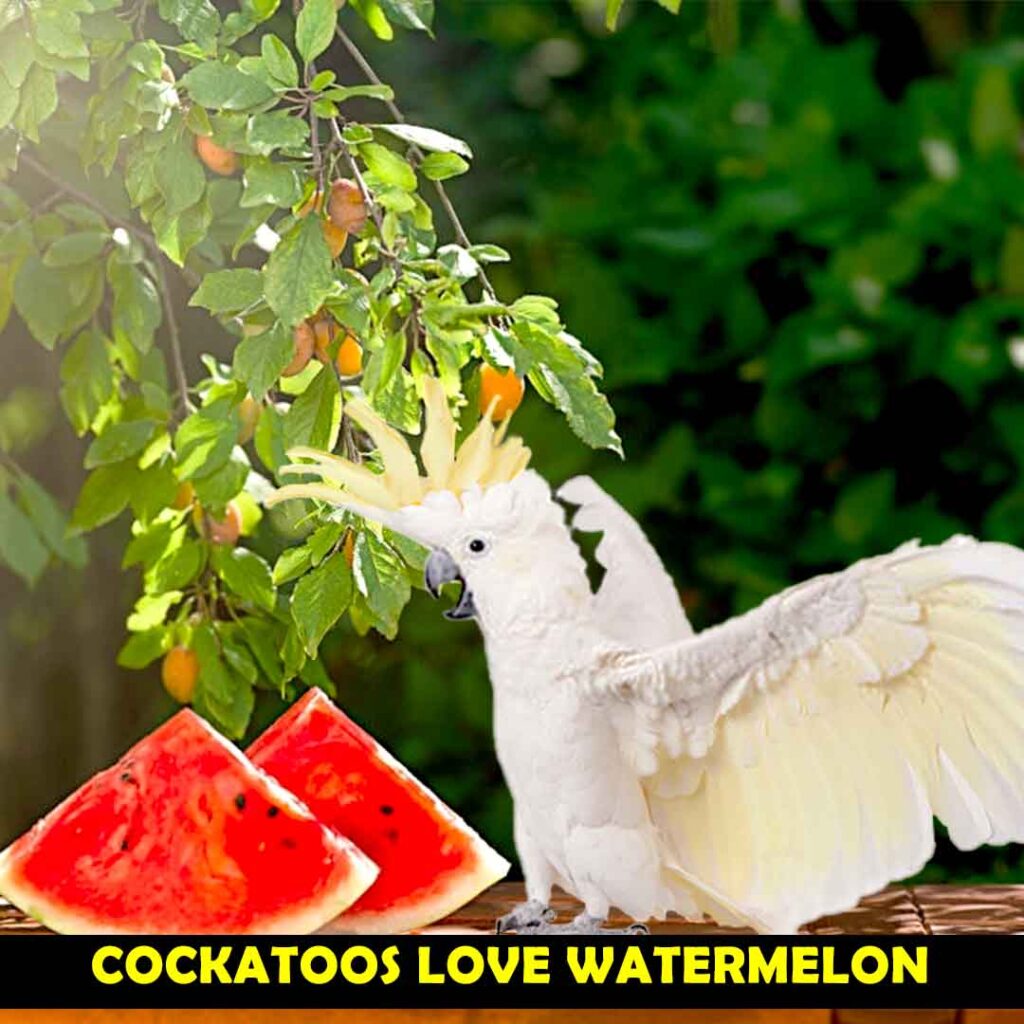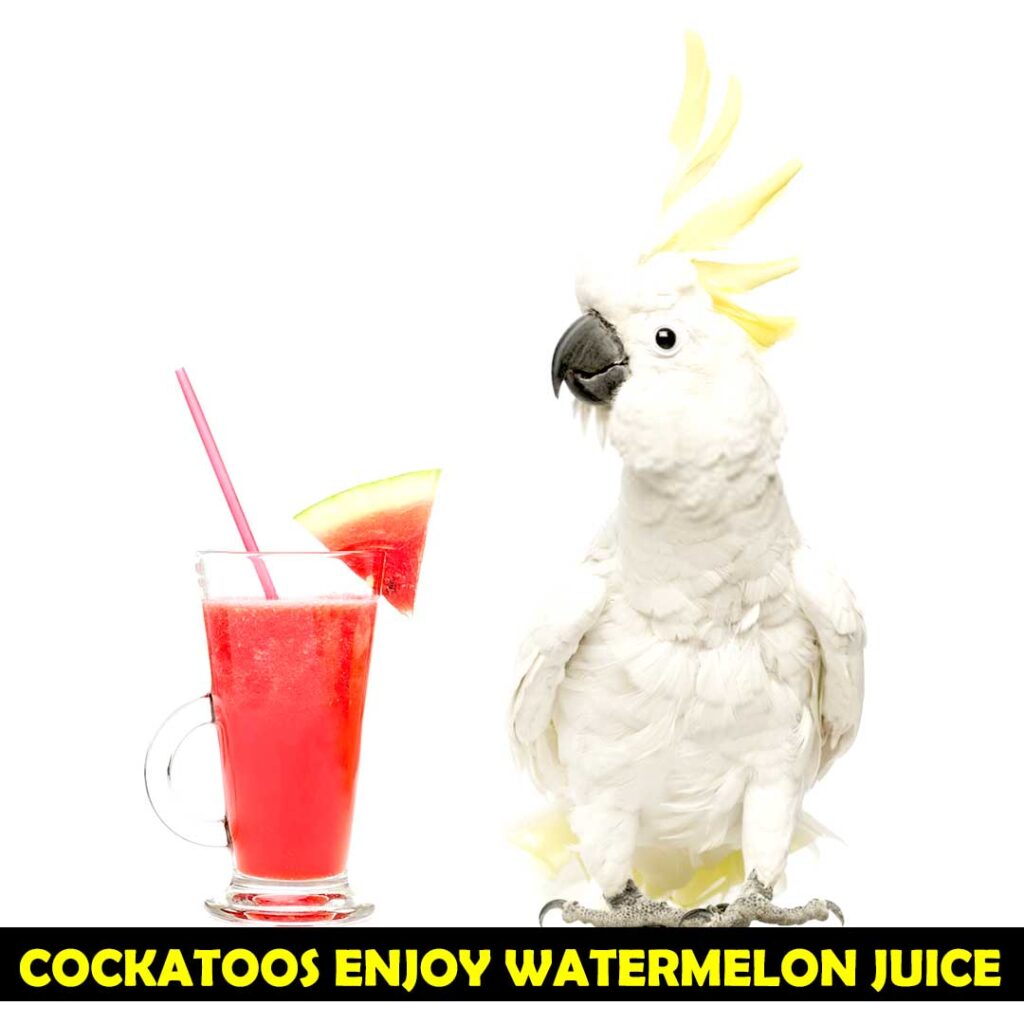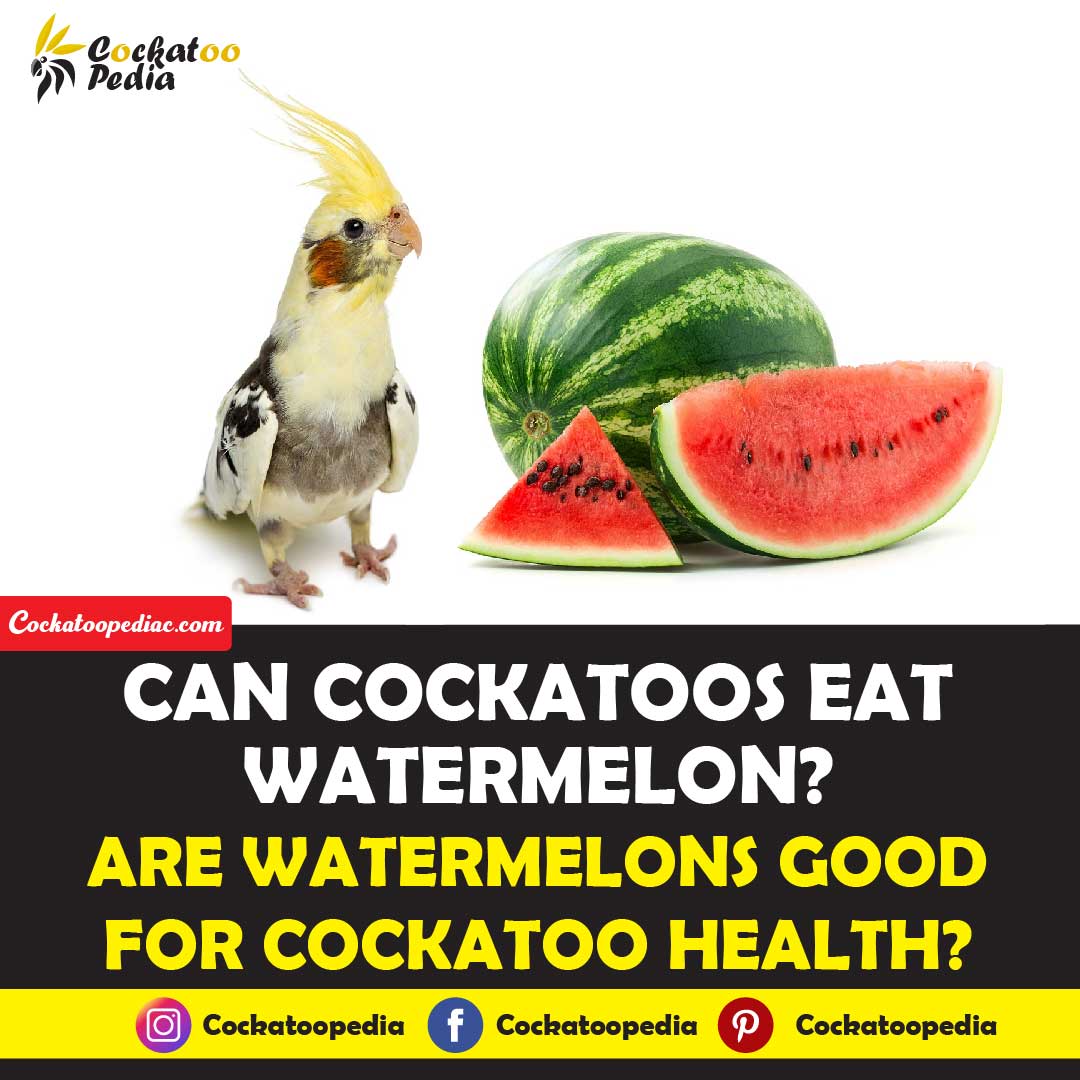Cockatoos eat a wide variety of fresh fruits, and fruits constitute almost 40% of their diet. Most of the fruits are good for them but some are unhealthy. In this article, we will discuss whether cockatoos can eat watermelons?
Yes, cockatoos can eat watermelon. It contains vitamins, minerals, fiber, and water which are complete nutrition for cockatoos. They love to eat watermelon as it is juicy and contains seeds.
DId you know watermelon’s flesh is not the only part your can serve to cockatoos?
Can Baby Cockatoos Eat Watermelons?
Baby cockatoos can also eat watermelon and drink its juice. Feed them watermelon juice no more than 2 tablespoons, once a week.
Also read about other foods cockatoo babies can eat: What do Baby Cockatoos eat?
To learn about how to feed a baby cockatoo, read: How To Feed A Baby Cockatoo?

Can Cockatoos Also Eat Watermelon Skin, Seeds, and Drink Juice?
The inner part (flesh) of watermelon is nutritious for cockatoos but what about the other parts? Let’s discuss whether cockatoos can be served other parts or not?
Can Cockatoos Eat Watermelon Seeds?
Many people believe watermelon seeds can stuck in cockatoo throat and cause breating issues. But cockatoos never swallow the seeds without chewing them and seeds are a part of their natural diet. So watermelon seeds are not harmful, cockatoos can eat them.
Can Cockatoos Eat Watermelon Rind?
Watermelon rind is edible but since it is slightly hard and tasteless, cockatoos usually dislike it.
Can Cockatoos Eat Watermelon Skin
Watermelon skin is usually sprayed with harmful pesticides. This is why watermelon skin can be toxic for cockatoos. But it can be served after proper cleaning.
Can Cockatoos Drink Watermelon Juice?
Watermelon juice is as nutritious as watermelon’s flesh and it keeps cockatoos hydrated. It protects these parrots from different heart, kidney, and lung disease

Health Benefits of Watermelon for Cockatoos
The flesh of watermelon is healthy for cockatoos because of its fiber, minerals and vitamins. These nutrients reduce cardiovascular, lung, and kidney diseases. They also improves the bowel movement and digestive system. Let’s discuss these nutrients individually.
Benefits of Vitamins Present in Watermelon
- Vitamin A produces keratin which makes their feathers smooth and healthy.
- Vitamin C fights against certain diseases and keeps their skin healthy.
- L-Citrulline (amino acid) helps in the strengthening of heart’s blood vessels and fights against lung diseases. It also helps baby cockatoos gain weight.
- Vitamin B is effective in brain growth, and it also helps to make your cockatoo sharp and attentive.
| Pros | Cons |
|---|---|
| Keeps cockatoos hydrated | Skin is often contaminated with pesticides |
| Fights against heart and kidney diseases | Rind is tastless, cockatoos dislike it |
| Helps baby cockatoos gain weight | Too sweet, excessive consumption is unhealthy |
How to Serve Watermelon to Cockatoos?
There are no particular instructions about feeding watermelon to cockatoos. Slice watermelon flesh before serving and make sure you do not feed watermelon skin. If you want to feed the skin, thoroughly wash it to remove all toxic elements.
Serve them watermelon no more than 60gm once a week.
What Other Fruits Cockatoos Can Eat?
You might also be interested in what other fruits cockatoos eat. Here is the list:
- Blueberries
- Grapes
- Apples
- Cucumber
- Strawberries
- Mangoes
- Oranges
- Bananas
- Pineapples
- Pomegranate
- Tomatoes
- Kiwi
- Pumpkin
- Cantaloupe
- Zucchini
Conclusion:
Cockatoos can eat watermelon and drink its juice. The rind and seeds are also edible and safe for cockatoos but the skin can be toxic.
To learn more about cockatoo diet, read: What Do Cockatoos Eat?
Also read: What Not To Feed A Cockatoo?

